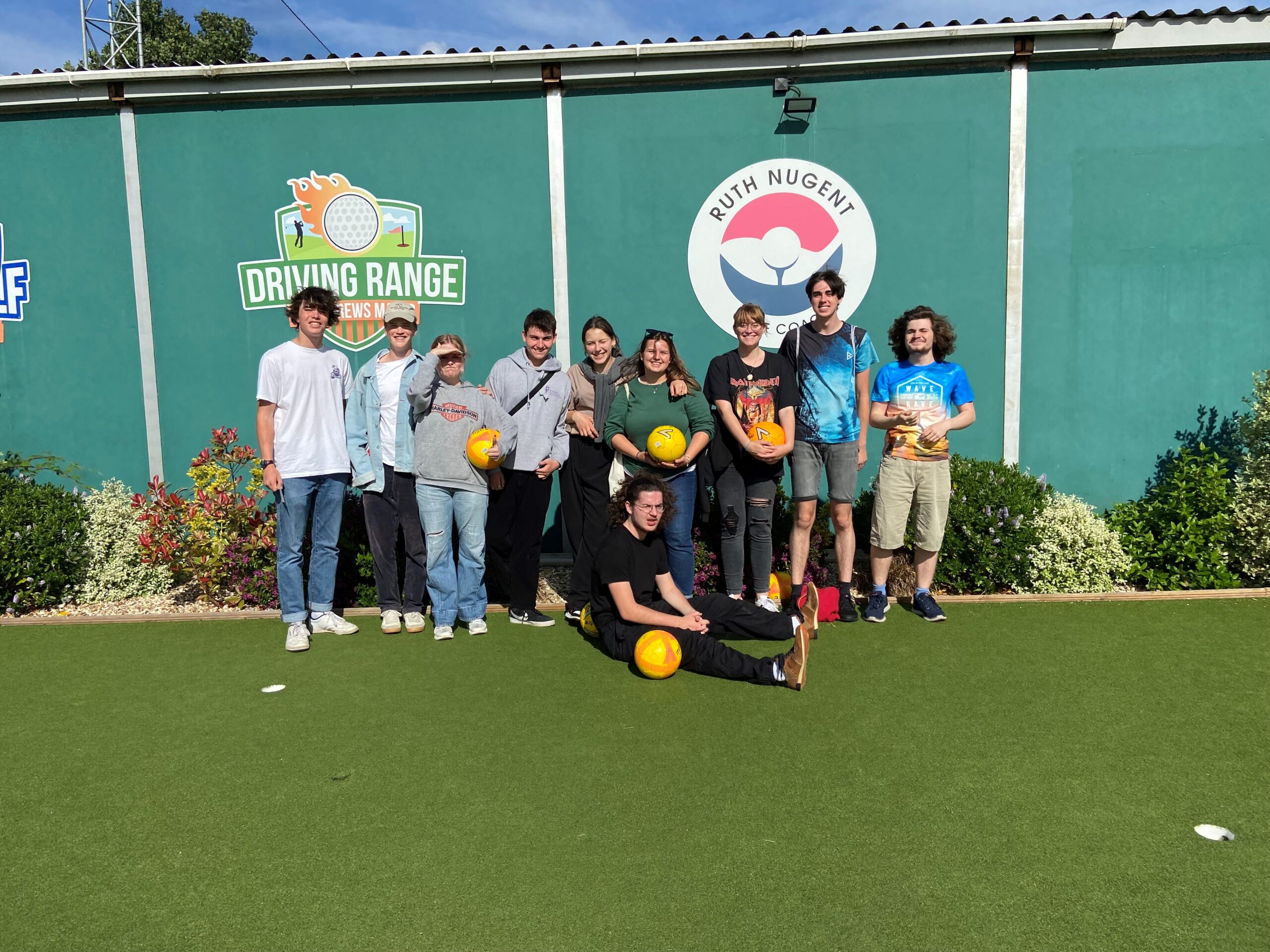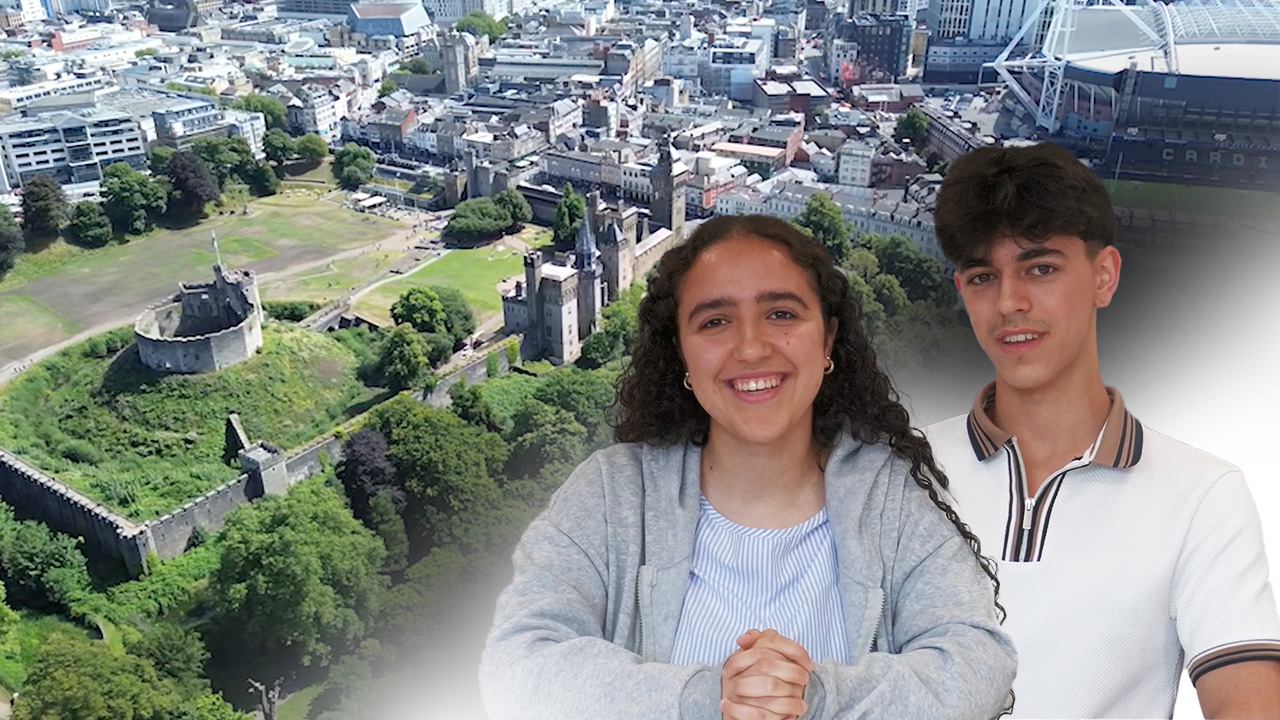You must be aged 16-19 to apply to St David’s. You will also need to meet the following entry criteria:
At least six GCSEs/iGCSEs at grade C or above to study three AS levels
OR
At least six GCSEs/iGCSEs at grade B or above to study four AS levels
If your country does not have GCSE or the IGCSE, then you will need to supply us with your formal end of year report for each of your subjects.
If you meet the above entry criteria, and wish to apply to St David’s College.
First, download an application form.
Email your completed application form to internationalstudents@stdavidscollege.ac.uk, along with a scanned copy of your passport and/or visa information, and a letter of consent from a parent or official guardian if you are under the age of 18.
You must prove your knowledge of the English language when you apply. You can prove your knowledge of English by passing a Secure English Language Test (SELT) from an approved provider.
If you meet the requirements of the courses you have chosen, we will issue you with a conditional offer letter. Upon receipt of the offer letter, you will need to meet the conditions mentioned and pay the course fee. Once you have met all the conditions, you will be issued with an unconditional offer. You will then need to apply for a UK Visa & Immigration visa.
Please note that the process of obtaining a visa can take several months so please apply early to avoid any delays to the start of your education.
Before a CAS is issued by the college the following documentation is required:
- A completed application form with a carefully considered personal statement in which the student sets out his / her reasons for attending the UK to study
- A copy of the student’s passport confirming nationality and age
- Qualifications which equate with the entry requirements for UK students for entry to NQF level 3 study. Level 3 study is offered by the college as A Levels.
- Qualifications which demonstrate that study in the college is progression from their previous education
- The submission of academic report or references from their previous school demonstrating aptitude for study
- You must prove you can read, write, speak and understand English to CERF level B1 at least.
- You’ll need to show you have enough money to support yourself. You will need £1023 per month (for up to 9 month) plus tuition fee. You must have this money for at least 28 consecutive days. The end date of the 28-day period must be within 31 days of the date you apply for your visa.
- You’ll also need to provide a copy of your birth certificate (or another government issued document) that shows the names of your parents.
- Payment of tuition fees
- Signed parent / guardian agreement which is signed by both parents to give consent to travel, reception and care if the student is under the age of 18
If you’re under 18 you’ll need written consent from both parents or legal guardians (or one parent if they have sole responsibility).
This must include their consent for:
- Your visa application
- Your living and care arrangements in the UK
- Your travel to the UK
What experience suits you?
A. Cultural Immersion Experience (Less than sixth month visit)
B. Study abroad program (one or two-year visit)
Here are some key aspects of a cultural immersion experience:
- Living like a local: Participants will stay with host families or in local communities, getting a firsthand experience of daily life and routines.
- Language learning: You will have opportunities to learn basic conversational skills through daily interactions.
- Cultural activities: Students will engage in activities that reflect the local culture, exploring historical sites and visits.
- Homestay accommodation: St. David’s students stay with host families, allowing for deeper connections with the community and daily cultural exposure.
- Reflection and personal growth: Throughout the experience, participants have opportunities to reflect on their cultural encounters, challenge their own biases, and develop a broader understanding of the world and themselves.
- A deeper understanding of other cultures: Participants gain firsthand knowledge and appreciation for different ways of life.
- Personal growth and intercultural competence: Develop skills like empathy, adaptability, and communication in diverse settings.
- Language learning and appreciation: Enhances language skills and fosters a deeper appreciation for different languages and communication styles.
- Building relationships and connections: Creates lasting memories and fosters valuable connections with people from different backgrounds.
- Broadened worldview and self-awareness: Challenges one’s cultural assumptions and fosters personal growth through self-reflection.
Overall, a cultural immersion experience offers a unique opportunity to step outside your comfort zone, challenge your perspectives, and gain a deeper understanding of yourself and the world around you.

Here are some critical aspects of a study abroad program:
A study abroad program offers a high-intensity academic experience in a different country, typically lasting anywhere from one academic year to complete a selection of full AS Examination in their chosen subjects or two years to complete a suite of full A levels (called A2 in Wales) allowing for entry to UK Higher Education.
This type of program can be a fantastic option for students who want to:
- Experience a different educational system: You will be exposed to diverse teaching methods, course structures, and academic perspectives.
- Gain international academic credit: Many programs allow you to earn credits that can be transferred back to your home university, contributing towards your degree progression.
- Explore a specific academic field: These programs often focus on specialised topics, offering an in-depth exploration of a particular area of study.
- Develop research skills: Some programs incorporate research projects, allowing you to hone research skills and gain firsthand experience in your field.
- Boost language proficiency: Immersing yourself in an academic environment can significantly improve your language skills through daily use in lectures, discussions, and assignments.
- Focused courses: AS and A2 examinations allow for a deep dive into specific subjects.
- Guest lectures and seminars: Renowned scholars, researchers, and local experts often visit St. David’s to share their knowledge and insights.
- Field trips and cultural excursions: Programs often integrate field trips and excursions to complement classroom learning and provide real-world experiences.
- Independent study and research: Depending on the program, you might have the opportunity to conduct independent research, allowing you to delve deeper into a chosen topic.
- Enhanced learning experience: Immersed in a dynamic academic environment, you can gain new perspectives and approaches to your chosen field.
- Preparation for future studies: This can be a great way to test the waters of studying abroad and gauge your interest in pursuing further international education.
- Career development: International exposure and knowledge gained can be valuable assets for your future professional career.
- Personal growth and cultural understanding: You will develop valuable life skills like adaptability, independence, and intercultural communication while gaining a deeper understanding of a different culture.
- Choosing the right program: Select a program that aligns with your academic interests, desired learning outcomes, and location preferences.
- Duration and cost: Programs vary in length and cost. Carefully research options that fit your academic goals and budget.
- Meeting eligibility requirements: Ensure you meet the program’s academic prerequisites and language proficiency expectations.
- Pre-departure preparation: Familiarise yourself with the new environment, university expectations, and visa procedures well in advance.
Overall, a study abroad program offers an enriching and intensive academic experience within a short timeframe. It allows you to expand your knowledge, develop valuable skills, and gain a broader perspective on the world, all while immersing yourself in a new culture.





